Cromwell is a British 1970 historical drama film written and directed by Ken Hughes. It is based on the life of Oliver Cromwell, who rose to lead the Parliamentary forces during the later parts of the English Civil War and, as Lord Protector, ruled Great Britain and Ireland in the 1650s. It features an ensemble cast, led by Richard Harris as Cromwell and Alec Guinness as King Charles I, with Robert Morley as Edward Montagu, 2nd Earl of Manchester and Timothy Dalton as Prince Rupert of the Rhine.
| Cromwell | |
|---|---|
Theatrical poster by Howard Terpning | |
| Directed by | Ken Hughes |
| Produced by | Irving Allen |
| Written by | Ken Hughes |
| Starring | Richard Harris Alec Guinness Robert Morley Nigel Stock Geoffrey Keen Michael Jayston |
| Music by | Frank Cordell |
| Cinematography | Geoffrey Unsworth |
| Edited by | Bill Lenny |
Production company | Columbia Pictures Irving Allen Productions |
| Distributed by | Columbia Pictures |
Release date |
|
Running time | 139 minutes |
| Country | United States United Kingdom |
| Language | English |
| Budget | $8 million |
The film received two Oscar nominations during the 43rd Academy Awards held in 1971, winning one for Best Costume Design by Vittorio Nino Novarese, but losing another for Best Original Score, composed by Frank Cordell. It was also nominated for a British Academy of Film and Television Award (BAFTA) in Costume Design and a Golden Globe for Best Original Score. At the 7th Moscow International Film Festival in 1971 it won the award for Best Actor (Richard Harris), and was nominated for the Golden Prize as Best Picture (Ken Hughes). The film received negative reviews for historical inaccuracies, however, praise went to the acting, (particularly Harris and Guinness), the score and costume design.
Screenplay
Oliver Cromwell is a devout Puritan, a country squire, magistrate and former member of Parliament. King Charles I's policies, including the enclosing of common land for the use of wealthy landowners and the introduction of "Popish" and "Romish" rituals into the Church of England have become increasingly grating to many, including Cromwell. In fact Charles regards himself as a devout Anglican, permitting his French Queen to practise Roman Catholicism in private but forbidding her to bring up the young Prince of Wales in that faith. Cromwell plans to take his family to the New World, but, on the eve of their departure, he is persuaded by his friends to stay and resume a role in politics.
Charles has unenthusiastically summoned Parliament for the first time in twelve years, as he needs money to fight wars against both the Scots and the Irish. Although to appease the Commons he reluctantly agrees to execute his hated adviser the Earl of Strafford, the Parliament of England will still not grant him his requests unless he agrees to reforms that could lead to a constitutional monarchy. Committed to the divine right of kings, and under pressure from his queen to stand firm, Charles refuses. When he attempts to arrest five members of Parliament (in reality Cromwell was not one of them), war breaks out in England itself, Parliament against the king, both sides convinced that God is on their side.
When the Parliamentary forces in which Cromwell is a cavalry officer proved ineffective, he, along with Sir Thomas Fairfax, sets up the New Model Army and soon turns the tide against the king. The army's discipline, training and numbers secure victory and Cromwell's cavalry proves to be the deciding factor. With his army defeated, Charles goes so far as to call on help from Catholic nations, which disgusts his Protestant supporters. He is finally defeated but, a brave man in his own way, he still refuses to give in to the demands of Cromwell and his associates for a system of government in which Parliament will have as much say in the running of the country as the king.
Cromwell—who has had to maintain discipline in the highly politicised New Model Army by hanging a ringleader of an incipient mutiny—later hears from Sir Edward Hyde, the king's once-loyal adviser, that Charles has secretly been raising a Catholic army to resume the war against Parliament. He and his supporters thus have Charles put on trial for treason. Charles, found guilty and sentenced to death, faces execution bravely and even his most ardent critics are moved by his dignity and the fact that he has forgiven his captors. There is little celebration or satisfaction over his death, even on Cromwell's part.
However, Parliament soon proves itself just as useless in governing the country and, like the late king, Cromwell is forced to undertake a coup d'etat. But where Charles failed, Cromwell succeeds: his troops remove the MPs from the House of Commons, leaving Cromwell sitting symbolically alone in the Chamber as virtual dictator where he outlines to the viewer his vision for The Protectorate.
The film ends with a voice-over stating that Cromwell served very successfully for five years as Lord Protector before Charles I's son, Charles II, returned as king of an England "never to be the same again".
- Richard Harris as Oliver Cromwell
- Alec Guinness as King Charles I
- Robert Morley as the Earl of Manchester
- Dorothy Tutin as Queen Henrietta Maria
- Frank Finlay as John Carter
- Timothy Dalton as Prince Rupert of the Rhine
- Patrick Wymark as the Earl of Strafford
- Patrick Magee as Hugh Peters
- Nigel Stock as Sir Edward Hyde
- Charles Gray as the Earl of Essex
- Michael Jayston as Henry Ireton
- Douglas Wilmer as Sir Thomas Fairfax
- Geoffrey Keen as John Pym
- Anthony May as Richard Cromwell
- Stratford Johns as President Bradshaw
- Ian McCulloch as John Hampden
- Patrick O'Connell as John Lilburne
- Anna Cropper as Ruth Carter
- Jack Gwillim as General Byron
- Stacy Dorning as Mary Cromwell
Tony Caunter, George A. Cooper and Peter Bennett, three prominent English actors, were cut out of the film following production. Timothy Dalton, 24 years old at the time, was offered the role by casting director Maude Spector, known for her work in Lawrence of Arabia.
The final version of Cromwell at one stage was 180 minutes long, but it was cut down to 141 minutes, deleting a number of featured roles in the process including Felix Aylmer (in his final film) as an archbishop, and Bryan Pringle.
Hughes originally wrote the script in 1961. Richard Harris liked it and wanted to star but financiers did not consider him a big enough star at the time to finance the film. They wanted Charlton Heston but Hughes did not think he was appropriate. He tried to get Richard Burton to read the script but Burton was not interested. Hughes almost succeeded in making the film in 1968 but finance fell over at the last minute.
Hughes eventually succeeded in raising the money from the US. The budget started at $6 million and blew out to $9 million. Most of the film was shot in England but the battle scenes were shot in Spain. The original cut went for three hours fifteen minutes but Hughes cut it down to two hours twenty four minutes.
"I think its the best thing I've ever done," said Hughes in 1970.
This section needs additional citations for verification. (September 2012) (Learn how and when to remove this template message) |
Although publicity for the film boasted that it had been made "after ten years of research", the film has been criticised for its historical inaccuracies. In its defence, George MacDonald Fraser has written, "Inevitably there are historical queries all the way through, as there are bound to be in a picture which takes its subject seriously and tries to cover so much in less than two and a half hours. The main thrust of Cromwell is true, it gets a great deal of history, and the sense of history, right." Costumes, locations (e.g., the layout of the then-House of Commons) and the appearance of actors were generally accurate but, as in many historical films – as much as for practical film making purposes as anything else – liberties were taken with the exact course of events.
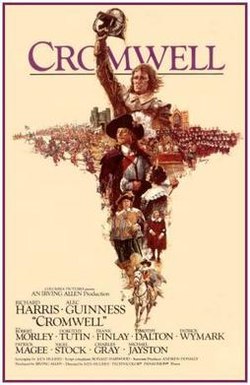 Story of movie Cromwell Film :
Story of movie Cromwell Film : 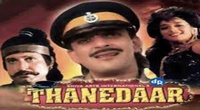
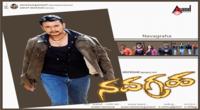

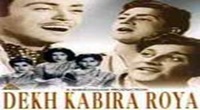



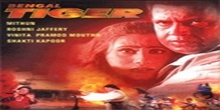
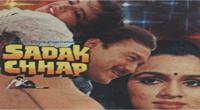
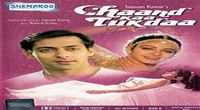
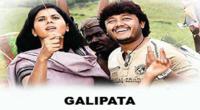
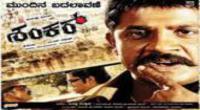
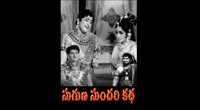




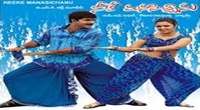
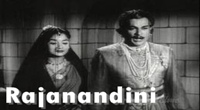

.jpg)
